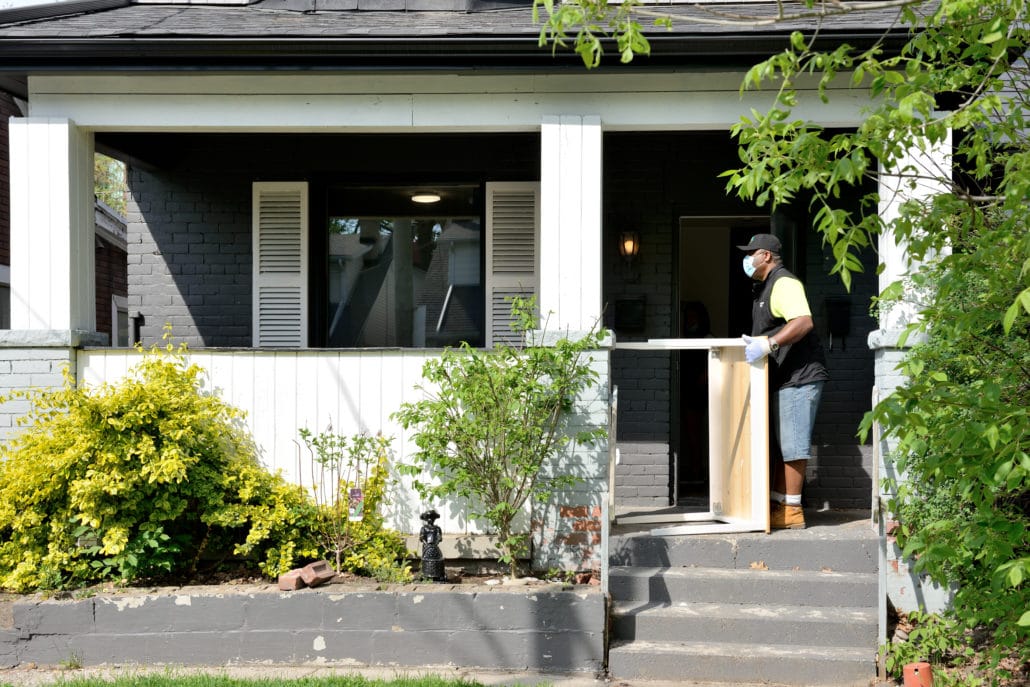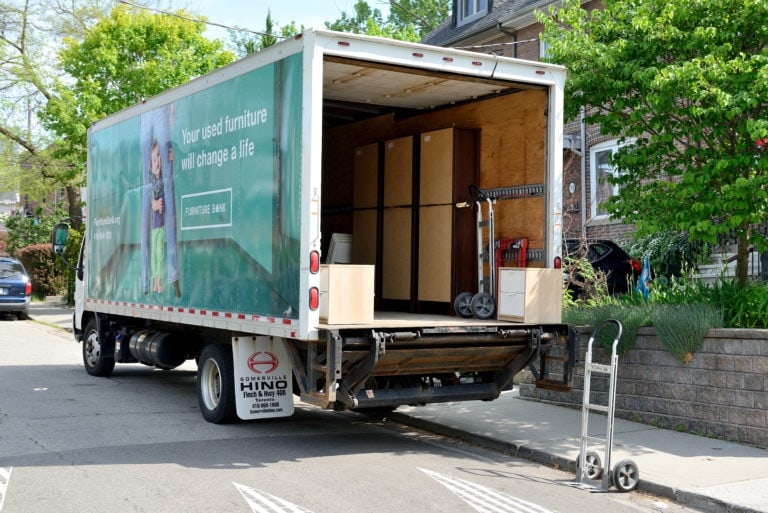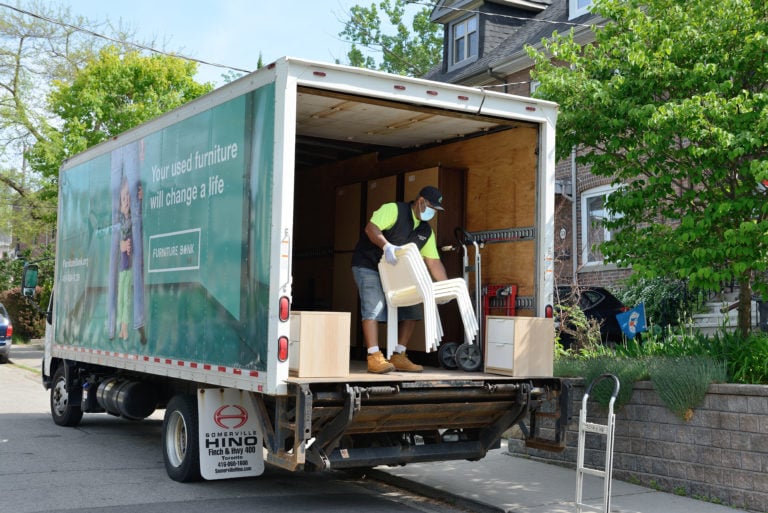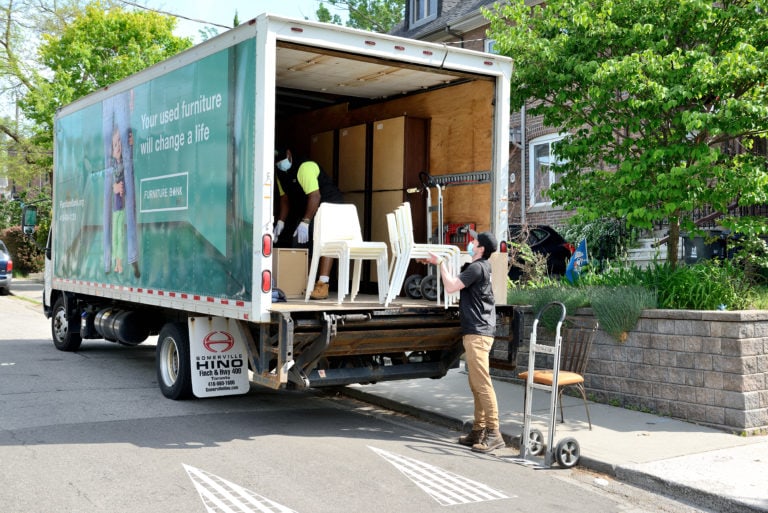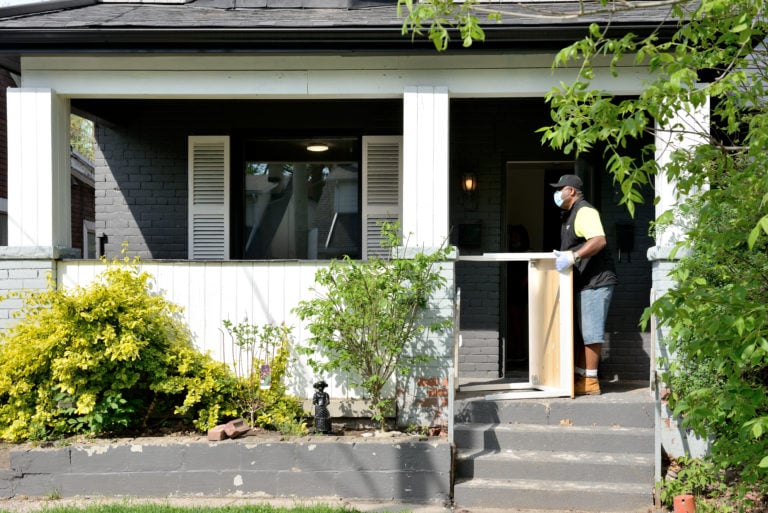Table of Contents
Many of the people we work with in housing programs have never had a real home; many grew up in different systems and institutions, child welfare, psychiatric facility or correctional facility. Somewhere safe and private that does not involve a cell mate or a crowded dorm setting is a welcome relief but can also be scary.
In most cases, the way that our furniture donation service users have been living (homeless), means that the immersive street and jail culture is firmly solidified into their psyche and connected with their sense of low self worth. Others display behaviours that were useful to keep them safe in the past, but can cause serious issues in congregate living settings and in community in general. Part of our work is to help people acquire necessary skills, self confidence, responsibility and improved health that comes with having a home; a private space and a chance to build functional relationships with others.
Research has shown that on average, 33-44% of people leaving our provincial jails are homeless upon release and that 25% of those on the waiting list for supportive housing (mental health and addiction) have contact with the criminal justice system. Literature also illustrates the powerful, stabilizing factor that having a home can provide, especially for those attempting reintegration. Also, having a home is associated with improved quality of life, mental and physical health, reduced criminal behaviours and enhanced community safety. In fact, studies suggest that individuals desist from crime when opportunities to separate from settings, situations, and criminal associates are presented to them.
The John Howard Society of Toronto (JHST) has been providing housing programs for 15 years. However the existing models have been inadequate for a portion of our clients (fluctuating between 12-23%), due to their need for additional support in order to be successful. Our experience and client’s feedback dictates the need for more intensive case management and rent subsidies to improve their housing outcomes. These individuals have complex needs and even if housed, cannot retain their accommodation and require rehousing.
While housing is certainly key, we know that it takes more than four walls to make a home. Having a home means feeling safe and comfortable; having a place to lay your head each night; to be protected from the elements; to use the washroom and practice hygiene routines (more important now than ever given the COVID-10 pandemic), with privacy and dignity; to know that you have can eat there when you are hungry and, even have a quiet place to read, think, watch TV, reflect, plan, and care for oneself. This means bedding, blankets, towels, cutlery, pots, pans, dishes, window coverings, shower curtains, small appliances and even pictures to hang. These are things that help to make a house a home and we could not have done that without the help of the Furniture Bank.
Our longstanding history of client engagement coupled with our access to jails and partnerships with corrections positions us well to expand our housing programs for this vulnerable group. Upon release our clients struggle with returning to chronic homelessness, poverty, stigma, institutionalization, mental health, substance use, cognitive impairments, and brain injuries. They are susceptible to high rates of disease, mortality, and overdoses causing death. Combined with physical health ailments, their complex needs create substantial barriers to finding and maintaining housing. To respond to these needs, we have been provided with funding and rent supplements for 30 of our service users via the provincial Home for Good Initiative, which is administered by the City of Toronto. Through this Program, which is oriented in harm reduction practices, we provide more intensive case management as well as support from people with lived experience.
On the 1st of June, 2020, 7 people within our program will move into their newly renovated homes, some of them, for the first time. We are extremely excited about the opportunity to work with the Furniture Bank and the City of Toronto to make home a reality for some of the most marginalized members of our community.
Amber Kellen B.A., B.S.W., M.P.P.A.
Director of Community Initiatives, Policy and Research
The John Howard Society of Toronto
3313 Lakeshore Blvd. W.
(416) 792-7808 ext. 227
https://johnhoward.on.ca/toronto/




